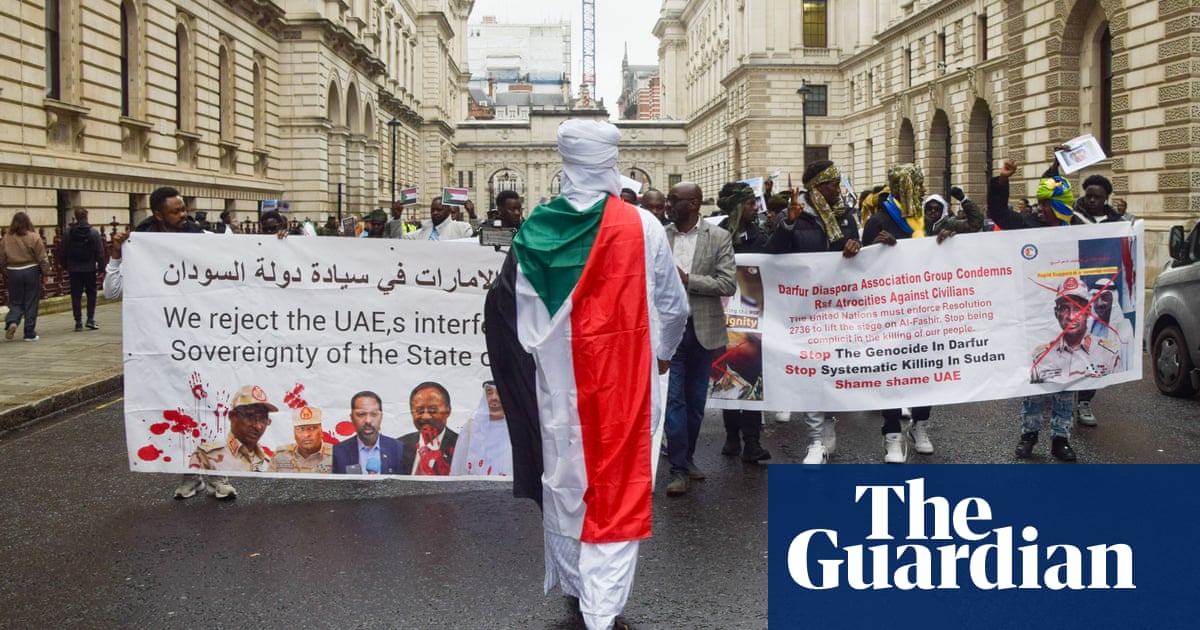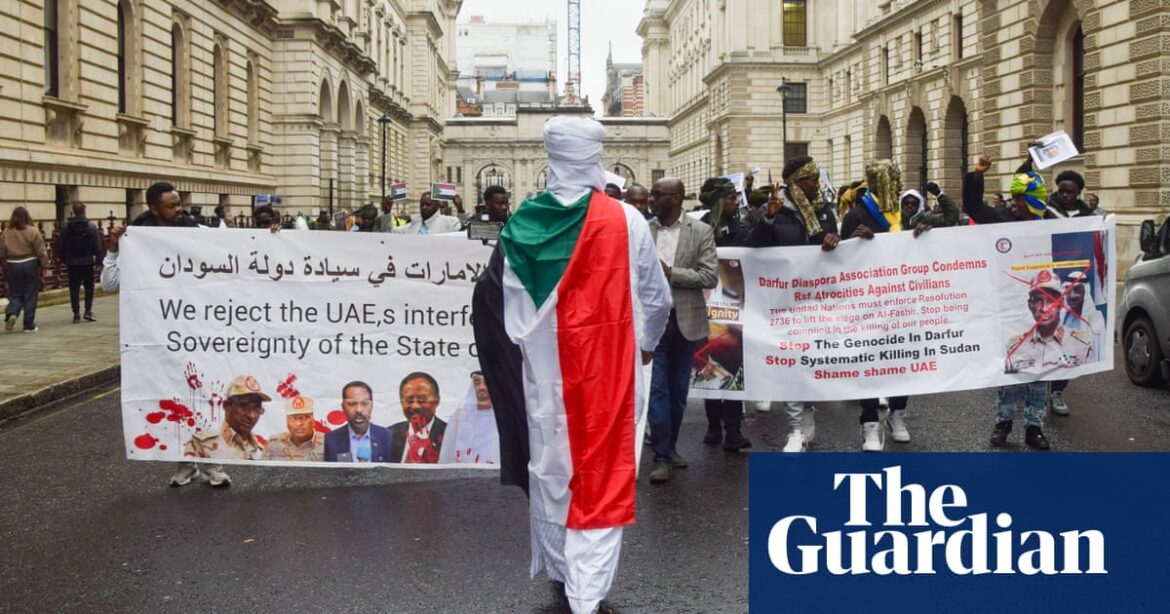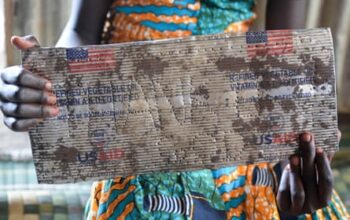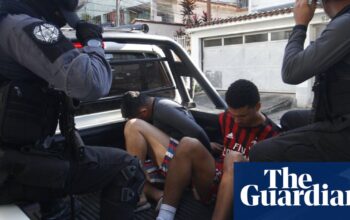
A conference convened by the UK in London on the second anniversary of Sudan’s civil war must map out a “pathway to end the suffering and the appalling disregard for human life” in the country, the UK foreign secretary, David Lammy, has said.
The one-day conference is being co-hosted by the UK, France, Germany, the EU and the African Union, and attended by ministers from 14 other countries, as well as representatives from bodies including the UN. Officials have said it does not constitute an attempt at mediation or aid-pledging, but instead intends to build greater political coherence about Sudan’s future among the many countries that have claimed a stake in the country.
In a measure of the expanding, intractable and externally fuelled nature of the war, Lammy chose not to invite any of the principal Sudanese actors or members of civilian society. The conference’s objectives are set modestly at seeking agreement on an African Union-led international contact group, and renewed commitments to end restrictions on aid.
The war, which erupted in April 2023, stemmed from a power struggle between the army – led by Gen Abdel Fattah al-Burhan – and the paramilitary Rapid Support Forces, led by Mohamed Hamdan Dagalo, known as Hemedti.
The aim in the communique to set up a contact group is intended to persuade Middle Eastern states to focus on diplomacy rather than strengthening the warring factions. Behind-the-scenes talks at the conference between diplomats from Egypt and the United Arab Emirates were under way to agree neutral wording that satisfied both parties.
The UAE has long been accused by Sudan and others of arming the RSF – which it strenuously denies – while Egypt has maintained close ties with the Sudanese army.
Sudan’s government has criticised the conference organisers for excluding it from the meeting while inviting the UAE.
The UAE minister for political affairs, Lana Nusseibeh, who is attending the conference, said atrocities were being committed by both sides, and condemned the recent RSF attacks on refugee camps. She called for an unconditional ceasefire, the end to unconscionable obstruction of humanitarian aid, and a transition to an independent civilian-led government.
Both the army and the RSF have been accused of committing atrocities in the course of the war, which has killed tens of thousands of people, displaced 13 million, and pushed large parts of the country into famine.
Two refugee camps in Darfur, the site of a genocide in the 2000s, were captured in the past few days by the RSF as it seeks to take El Fasher, the only major population centre in Darfur out of its control.
Lammy also announced an extra £120m in humanitarian aid from the depleted UK Foreign Office aid budget, enough to help deliver food to 650,000 Sudanese people. The German foreign minister, Annalena Baerbock, released a further €125m (£105m) for Sudan and neighbouring states.
At a separate event on Tuesday morning, aid and human rights groups called on the international community to punish the vast array of countries accused of either directly or indirectly sending arms to the warring parties in breach of a UN arms embargo.
after newsletter promotion
“The international community will have utterly failed if we have a conference today including those actively involved in the conflict and nothing comes from it again,” said Yasmine Ahmed, the UK director of Human Rights Watch. “We need a coalition of states with the UK and the co-hosts at the front ready to say we are galvanising the necessary political momentum to protect civilians on the ground.
“It is necessary that it is made clear that this cannot continue. The international community cannot sleepwalk into another genocide. They have international obligations to protect and respect international law.”
Kate Ferguson, a co-director of Protection Approaches, said: “The conference is a test of the kind of foreign secretary Lammy will be in a world full of chaos, crisis and violence, and where the US leadership is lacking.” She added: “Lammy needs to be unambiguous about the UK’s position, and unapologetic. The conference must confront and seek immediately to halt the unfolding genocide in Darfur.”
Lammy’s desire to raise Sudan’s profile is genuine, officials insisted, pointing out that he has visited the region and finds more time in his diary for the issue than any of his predecessors. However, such is the diplomatic sensitivity in the UK around its relations with some of the key regional actors that no press conference is being held, foregoing the chance to highlight what is routinely described as the world’s forgotten war.
Officials argue that if the meeting brings greater coherence of policy between western powers, and the multilateral institutions, that in turn could put some pressure on the regional bloc of actors with the real leverage to do more for peace.
However, neither side seems interested in discussing peace, and some fear the country is heading for a form of partition based around the current areas of control.
The meeting comes against the backdrop of US cuts to its aid programme.
Kate Phillips-Barrasso, a vice-president of global policy at the aid group Mercy Corps, said the nature of the US cuts meant it was hard to know how badly Sudan had been affected, but in her agency’s case, a lifeline for 220,000 people had been cut.
Source: theguardian.com



